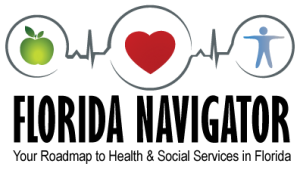Are You or a Neighbor Self-Neglecting?
The Savvy Senior
By Robert Goodman, MSW
There are many stories in Century Village, and you hear them all while riding the buses. I have heard stories of people laying on the floor for four days and not allowing anyone to call 911, stories about residents who cannot take care of themselves and have no food in their home who will not let anyone in to help, people who have money and won’t use it to care for themselves. One who does this or allows it to happen is guilty of neglect.
As a geriatric social worker, I want to help all these people, but realize I cannot save the world. But each one of us has a responsibility to help our neighbors as best we can when they are in need.
Self-neglect is a general term used to describe a vulnerable adult living in a way that puts his or her health, safety, or well-being at risk. The state’s definition of neglect is “Unexplained or unexpected deterioration of health, personal care or living situation. This includes inadequate food, clothing, and/or shelter.” Self-neglect is defined as “when individuals fail to provide themselves with whatever is necessary to prevent physical or emotional harm or pain.” Some people get to a point when they become a danger to themselves or others. These are serious situations and need to be dealt with.
Vulnerable adults who neglect themselves are unwilling or unable to do needed self-care. This can include such things as:
- Not eating enough food to the point of malnourishment.
- Wearing clothes that are filthy, torn, or not suited for the weather.
- Living in filthy, unsanitary, or hazardous conditions.
- Not getting needed medical care.
There are some common characteristics of adults who neglect themselves. He/ or she is more likely to:
- Live alone.
- Be female (possibly because more women than men live alone).
- Be depressed and/or increasingly confused.
- Be frail and elderly.
- Have alcohol and drug problems.
- Have a history of poor personal hygiene or living conditions.
Signs to look for:
The Home
- Not enough food, water, heat.
- Garbage and rotting food in refrigerator
- Filth or bad odors, hazardous, unsafe, or unclean living conditions or fire hazards.
- Major repairs are needed and not done.
- Human or animal feces.
- Hoarding: nothing is thrown away, stacks of papers, magazines.
- Animal or insect infestation.
The Person
- Poor personal hygiene (dirty hair, nails, skin).
- Smells of feces or urine.
- Unclothed, or improperly dressed for weather.
- Skin rashes or bed sores (pressure ulcers).
- Dehydrated, malnourished or weight loss.
- Absence of needed dentures, eyeglasses, hearing aids, walkers, wheelchairs, braces, or a commode.
- Increased dementia, confusion, disorientation.
- Unexpected or unexplained worsening of health or living conditions.
- Spending too much time alone or isolated from former activities.
- Lack of interest or concern about life.
- Untreated medical conditions. Failure to take medications or go to doctor or dentist.
- Self-destructive behaviors or significant behavior changes.
- Hallucinations, delusions.
- Misusing drugs or alcohol.
A self-neglecting older adult may have the capacity to make decisions, but his/her ability to identify and remove oneself from a harmful situation may be limited or compromised.
There are many possible reasons why a formerly meticulous person may have changed so drastically. Some of the more common reasons include:
- Medications
- Cognitive impairments
- Depression
- Alcohol or drug abuse
- Isolation
If you know of or suspect someone is a victim of abuse or neglect call 1-800-ABUSE (2873). You can remain anonymous. When calling to report abuse or neglect give the person’s name, address, family contact information if available, and describe the situation. For general information on services for seniors call the Elder Helpline at 1-866-684-5885 or 211.
(Sources: Palm Beach County Area Agency on Aging, State of Washington Department of Human Services, AARP)
Resources on Elder Abuse and Neglect:
Foundation for Healthy Aging
www.healthyaging.org
National Institute of Health Medline
www.nlm.nih.gov/medlineplus/elderabuse.html
National Committee for the Prevention of Elder Abuse
www.preventelderabuse.org
National Center on Elder Abuse
www.ncea.aoa.gov


